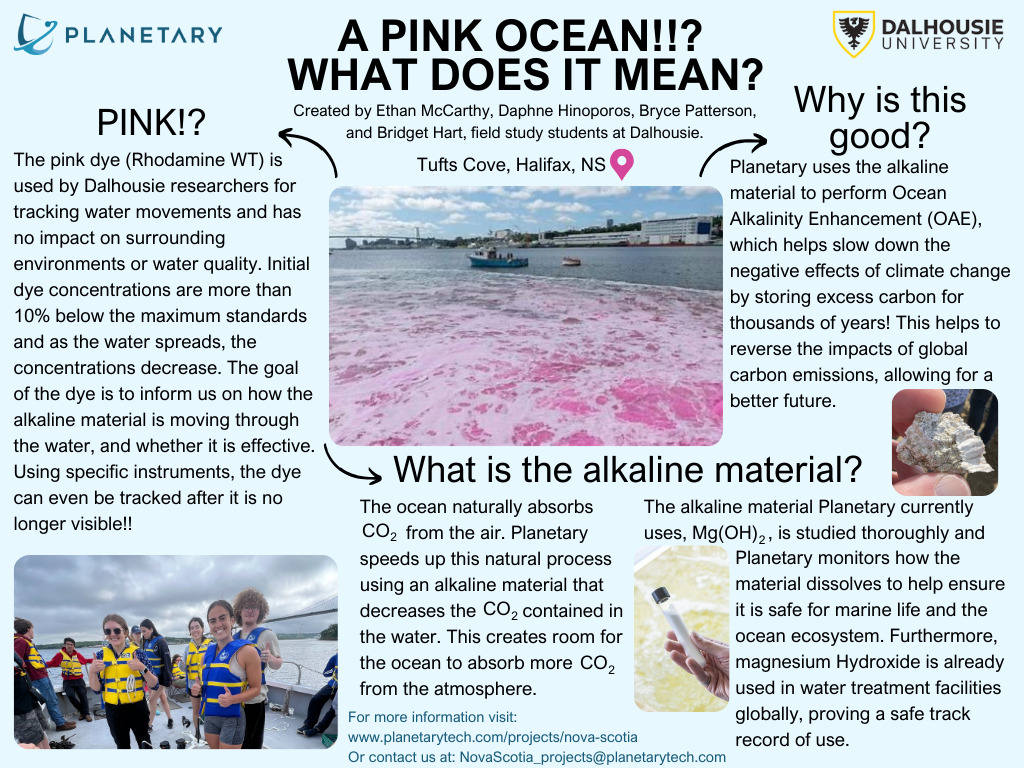In the weeks leading up to the latest Field Trial in Halifax, a group of Dalhousie students were invited to participate and learn more about ocean alkalinity enhancement within the context of their 3rd year undergraduate field oceanography class. The class, taught by Laura deGelleke, was first introduced to the field trial work when Planetary’s Chief Ocean Scientist, Will Burt, offered a guest lecture to the class earlier this summer.
Laura also opened up a challenge to her students in partnership with the team at Planetary, to develop brief content that would accurately report on field trial work taking place in a manner that is accessible and relatable to other people who might be considering a career in ocean science work. Students were invited to bring their creativity and style to the exercise – offering different ways of sharing and talking about OAE and field trial activities.
From Laura: “Being able to accurately explain scientific concepts to non-scientists in an understandable way is an important skill that our students were able to realistically practice in this exercise. It’s one of those things that seems easy when done well, but it’s actually quite a difficult task to do successfully. I’m very proud of the media our students were able to produce. And thanks to Planetary for their willingness to engage and then showcase this work.”
Indeed, these students did not disappoint with their submissions and we couldn’t be more pleased to be sharing these with the broader community.
Thanks to all the students of Laura deGelleke’s BIOL/MARI/OCEA 3003 (Summer 2024 semester) for lending your talent, creativity, and voice to our work in this way.
Submission #1: A PINK OCEAN!!? WHAT DOES IT MEAN?
This first submission offers a solid overview of how and why dying the ocean pink supports our work and offers a brief overview of our process and why it matters.


